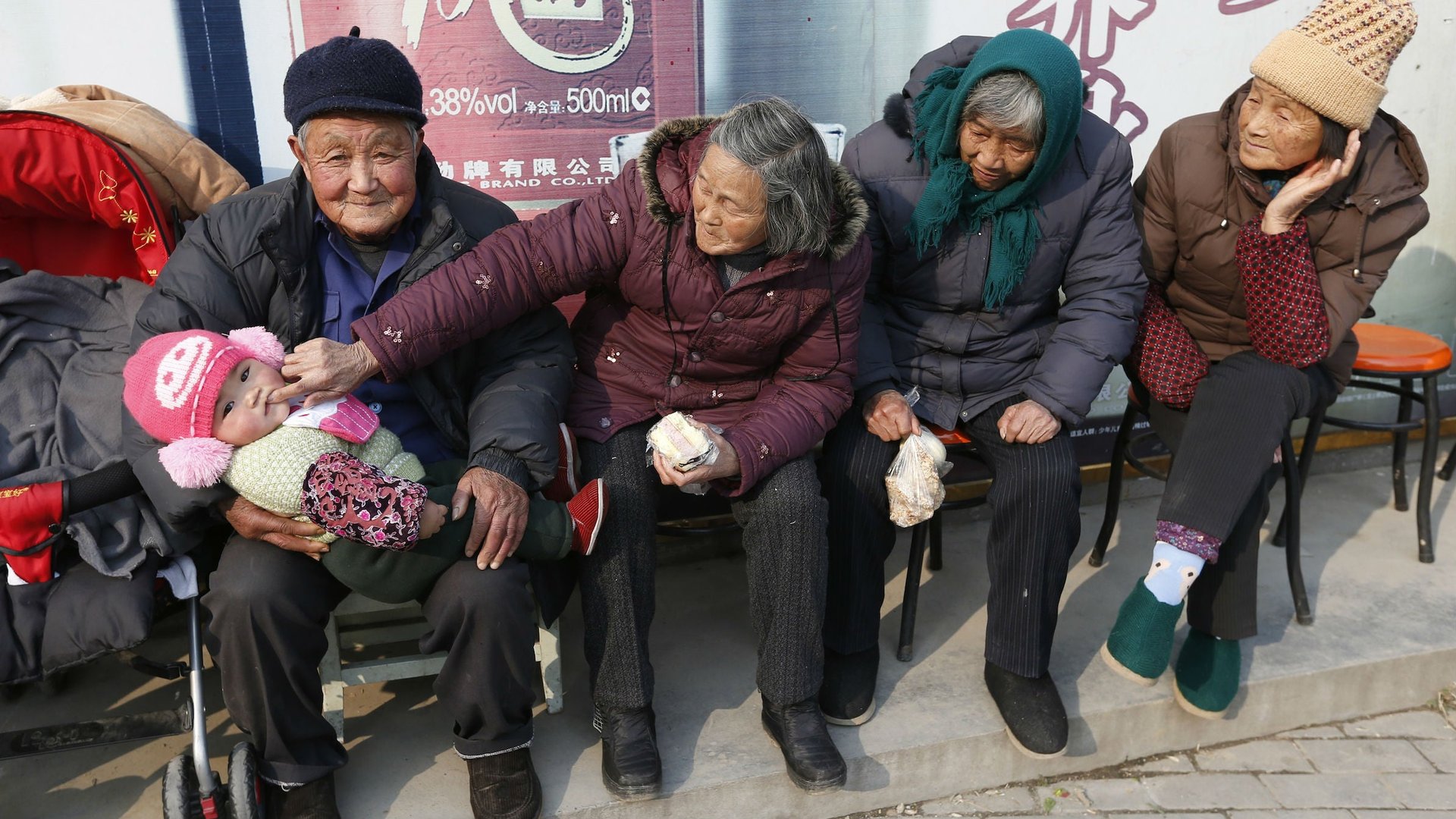Chinese bloggers assail the country’s one-child policy planners
China’s family planning department—which sets limits on how many children families can have—is learning the downsides of public exposure. The National Health and Family Planning Commission was digitally ambushed this month on Chinese social media when it posted its first greeting message (registration required) on Sina Weibo. In response, bloggers filled the department’s profile page with calls for an end to state-mandated birth control.


China’s family planning department—which sets limits on how many children families can have—is learning the downsides of public exposure. The National Health and Family Planning Commission was digitally ambushed this month on Chinese social media when it posted its first greeting message (registration required) on Sina Weibo. In response, bloggers filled the department’s profile page with calls for an end to state-mandated birth control.
The debate over how to reform China’s decades-old family planning rules isn’t exactly new. But chatter in Chinese policy circles suggests that changes may be imminent. The commission, which merged with China’s ministry of health earlier this year, is expected to unveil reforms such as scrapping a rule requiring that families who are permitted to have more than one child wait four years before having their second. As we’ve reported, overturning family planning rules now isn’t likely to fix China’s demographic problems. The one-child policy has been blamed for the country’s disproportionately large aging population, gender disparity and high number of forced and voluntary abortions and sterilizations (paywall).
Chinese citizens aren’t holding their breath. In response to the family planning department’s Weibo greeting, one blogger wrote, (registration required) “You might as well start outlawing having one child. When nearly all of China is dead, maybe the policy will be loosened.” Another said, “A policy that violates the heart of the people isn’t a policy for the masses and isn’t a good policy.” One blogger wrote, “Parasites!” The commission’s greeting sparked nearly 2,000 comments and was forwarded more than 8,000 times.
This blogger summed up the frustrations as follows: ”We understand when the country makes mistakes in its management. We understand when the common people get hurt. But hurting the next generation, and destroying China’s future? That we can’t understand.”